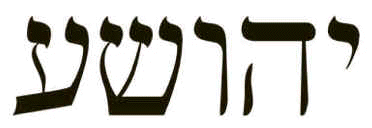The theological basis that the Messiah would enter into the world in about March is fairly sound, but is perfectly consistent with a Dec 25 Christmas. In fact, Catholics have since the early days of the Church recognized March 25th as the date that Christ was conceived, and therefore fulfilling such prophecies. March 25th, (or, actually April 6 accounting for the Julian calendar) incidentally, is the day that Christ died; the ancient Jews and Christians believed that great prophets died on the day they were conceived. (This feast is called that of the Annunciation, referring to the annunciation of Gabriel to Mary regarding the conception of Christ.)
The historicist arguments are quite presumptuous, ignoring the impact of the “Roman Warm Period,” for instance.
The syncretist arguments, that Christmas has a pagan origin, are thoroughly bankrupt: Some allege, for instance, that the date of Christmas is based on the date of Sol Invuctus, whereas that festival was moved to the date of Christmas in the third century. There existed a Judeo-Christian holiday on Dec. 25th (or the closes Jewish-calendar equivalent) as early as four centuries earlier, when the Macabbeans established that the 25th of Kislev be celebrated as the return of the Spirit of God into the Holy Temple (the Feast of the Dedication).
Niether the Feast of the Dedication, nor the ancient Judeo-Christian supposition that prophets were conceived on the day they die establish for certain that Christ was born on the 25th, but they certainly establish a pious and biblical reason for choosing that day to celebrate his birth.
16 posted on August 6, 2008 12:16:31 PM MDT by dangus
The question is whether you believe and trust Sukkot as the date is supported by Elizabeth's pregnancy of John the Immerser. Zacharias served as a high priest and based on his tribe, we know when he served John would have been born on Pesach. Most Jews believed that Elijah Factor in when Miriam visited her cousin Elizabeth, John (1:14) tells us that Yah'shua was made flesh and tabernacled among us. Eight days after the beginning of Sukkot is another Holy Feast Day called Shemini Atzeret. Eight days after a Jewish male is born he is circumcised. After the Eighth day comes the the most Joyous day: Nine months back from Sukkot is Chanukah where the light entered the temple.
the Holy Word of Elohim in Luke 1
or you trust the traditions of man Yah'shua's birth on Sukkot
shalom b'SHEM Yah'shua HaMashiach Adonai
(Sukkot is the Feast of Tabernacles or booths, where we live in temporary shelters.
Sukkot is when YHvH took on a temporary garment to be with His People
and to die as the Lamb of G-d on Pesach in order to bring salvation to all
who would call on His Name : Yah'shua ( YHvH is become my salvation)).
The time sequence is outlined by the Holy Word of Elohim in Luke 1 with Zacharias.
(1 Chronicles 24:7-18) and when he was struck dumb and when John was conceived.
would come at Pesach to announce the coming of the Messiah (Malachi 4:5).
Elizabeth was six months pregnant (Luke 1:26)
Thus the timing of Yah'shua's birth can be ascertained.
Simchat Torah or
the rejoicing in the Torah (The Word of Elohim). 